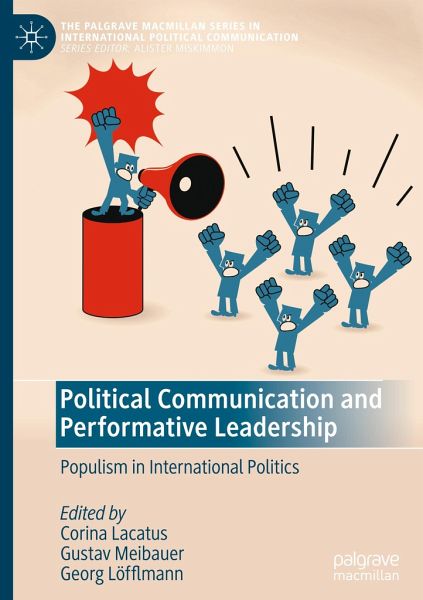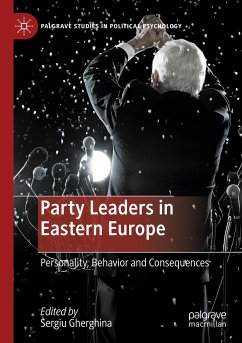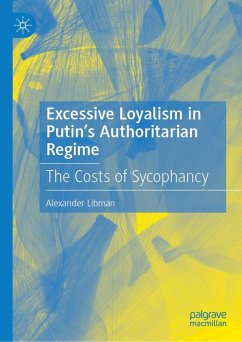
Political Communication and Performative Leadership
Populism in International Politics
Herausgegeben: Lacatus, Corina; Meibauer, Gustav; Löfflmann, Georg

PAYBACK Punkte
57 °P sammeln!
This edited collection explores the intersections of populist communication, performative leadership and international politics. It investigates the mechanisms and dynamics connecting these core conceptual fields and offers empirical examples. Together, the contributors to the volume argue that populist communication, i.e. the language, deliberation and discursive performance of populist ideas, has a profound and lasting impact not only on domestic politics, but in terms of foreign policies as well as the conduct of international politics writ large. First, populist communication shapes how gl...
This edited collection explores the intersections of populist communication, performative leadership and international politics. It investigates the mechanisms and dynamics connecting these core conceptual fields and offers empirical examples. Together, the contributors to the volume argue that populist communication, i.e. the language, deliberation and discursive performance of populist ideas, has a profound and lasting impact not only on domestic politics, but in terms of foreign policies as well as the conduct of international politics writ large. First, populist communication shapes how global, regional and transborder issues are debated and strategically used for political purposes domestically. Second, populist communication changes when and how states and other actors in turn formulate responses and policies vis-a-vis, for example, migration, global health, climate change, trade, or war. Finally, populist communication affects the nature of international politics. It influenceshow actors conduct themselves internationally, and how we may conceive of core concepts and practices such as diplomacy, security, cooperation, and order. To illustrate these mechanisms, the contributors explore cases from around the world, demonstrating the relevance of populist communication for international politics in both the Global South and the Global North.












